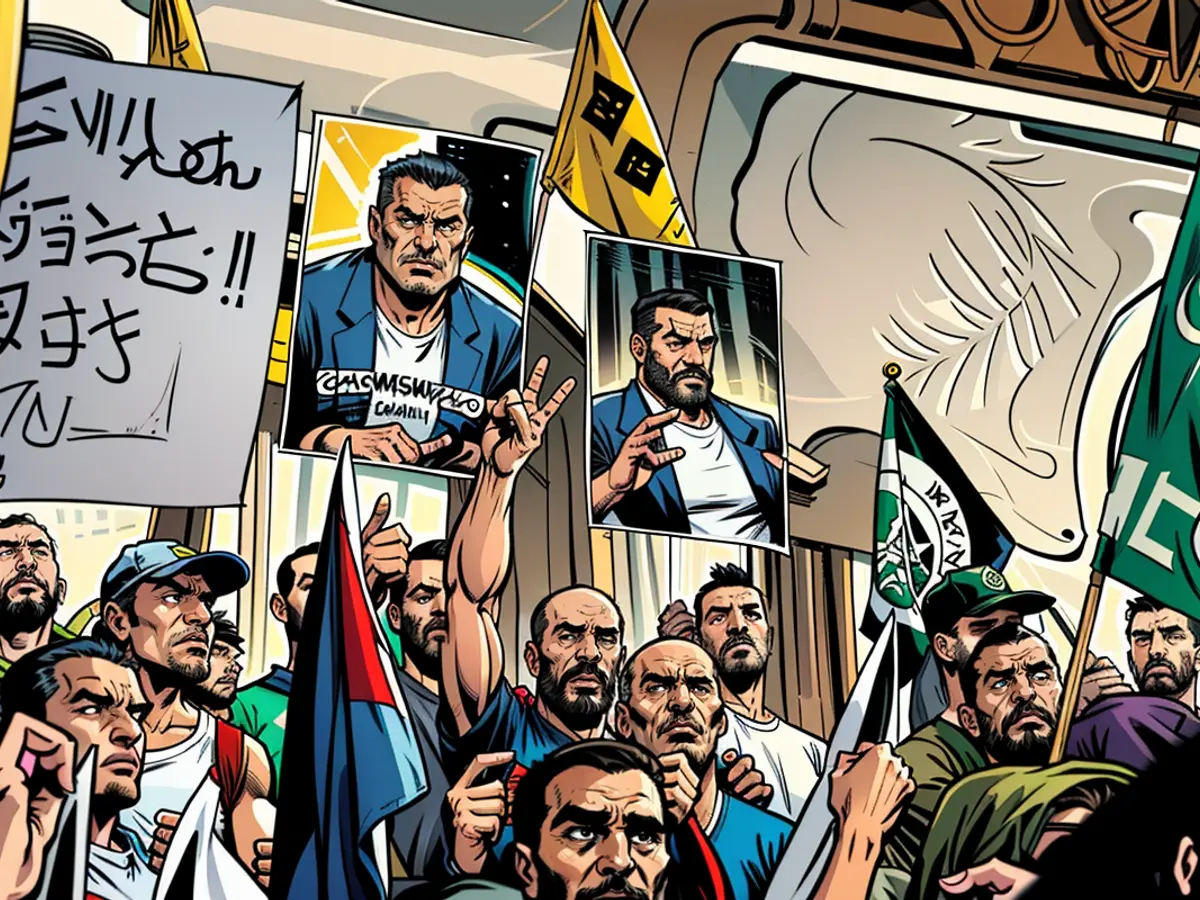- Anger over Hamas leader's death erupts into protests
In the Iranian capital of Tehran, thousands of people are participating in a state-organized mourning ceremony for the assassinated political leader of the Islamic Hamas, Ismail Haniyah. Present were also the entire political elite of Iran, including the Supreme Leader Ayatollah Khamenei and the new President Massoud Peschkian. Khamenei led a funeral prayer for Haniyah's coffin. The crowd chanted slogans like "Death to Israel" and "Death to America" to express their support for Haniyah and Hamas in Gaza, and their resistance against Israel. The Iranian government had declared a three-day national mourning period following the targeted killing of the high-ranking Hamas leader in Tehran. Haniyah will be buried on Friday in his adopted home of Qatar.
Haniyah was in Tehran on Tuesday to attend the inauguration of the new Iranian President Peschkian. In the early hours of Wednesday, he became the victim of an aerial attack. Hamas and Iran blame their arch-enemy Israel. The exact cause of his death is still unclear, with experts suggesting either an aerial or missile strike. The attack took place at a "special residence" in north Tehran - reportedly in the former Persian Shah's palace - which is usually heavily guarded.
Iran threatens retaliation against Israel
Simultaneously with Hamas, Iran has also threatened a swift retaliation against Israel. Khamenei and President Peschkian described a punitive action as the legitimate right of the country, as the attack was carried out on Iranian soil. In a crisis meeting, the Iranian Security Council reviewed various scenarios in this regard. Details have not been disclosed yet.
The attack came at an inopportune time for Iran, just eight hours after the inauguration of the supposedly moderate Peschkian as the new Iranian President. In his speech, he spoke of a new era in which he would like to engage in constructive dialogue with the West. Observers consider it unlikely that such dialogue would be possible after a potential retaliatory strike on Israel.
Iran is also in the midst of a long-standing economic crisis. Peschkian had promised before his election to revive the ailing economy through foreign policy reforms. What he definitely doesn't need, according to observers, is a military conflict with arch-enemy Israel, which could once again isolate the Islamic country internationally.
After threatening retaliation, Iran's Supreme Leader Ayatollah Khamenei and President Massoud Peschkian cited the attack on Ismail Haniyah as an act on Iranian soil, justifying a punitive action. The top news in Iran now revolves around the potential retaliation against Israel and its implications for Iran's diplomatic relations and economic recovery.
Despite the ongoing economic crisis, Iran faces a challenging situation with Israel, as any retaliatory action could further isolate the country in the global arena and potentially derail President Peschkian's plans for constructive dialogue with the West.








